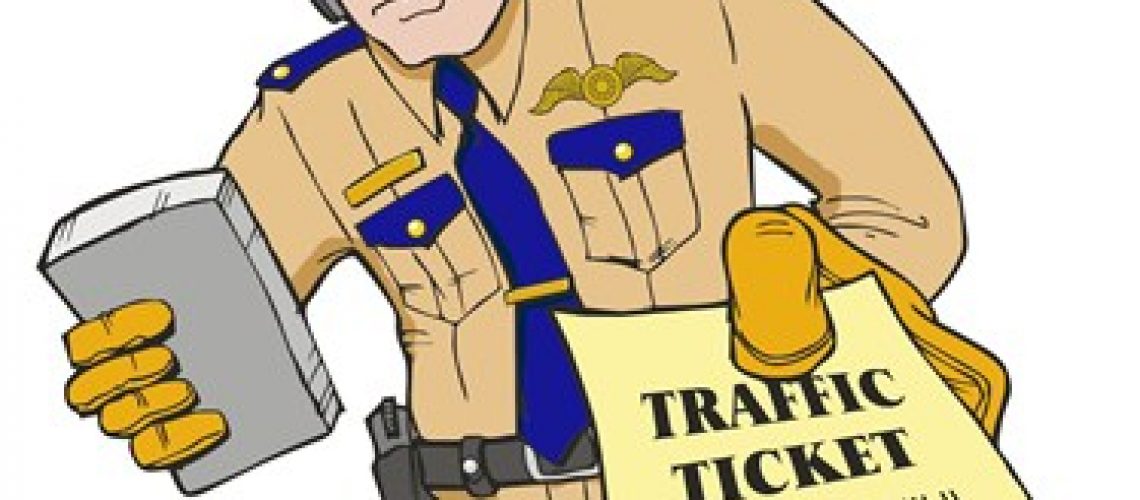When summertime arrives and young people are driving more, I find myself answering a lot more questions about the traffic laws of our State. Below are the most frequently asked questions and the answers. There are some exceptions and some nuances I do not cover completely; therefore, should you receive a citation or have a specific question I suggest you contact me or another lawyer knowledgeable in this area of the law. Most of us do not charge for a brief phone consultation to answer a question or point you in the right direction.
Can my young driver text while his vehicle is in motion?
No, he can’t. This law applies to all licensed drivers, not just teenagers. You cannot even read a text message while operating a vehicle in motion. This prohibition is against manual texting. However, there is new technology that allows you to send a text by voice operation. That is not prohibited by this law.
Can my teenager use her phone while driving?
Persons under 18 years of age may not use a mobile phone while operating a vehicle in motion. There is an exception for emergencies and an exception if the young person is talking to his or her parent, legal guardian or spouse. Personally, I do not like this exception – I think teens should pull over and stop before talking to Mom . . . but again, it currently is not illegal.
Can my kids ride in the bed of my pickup truck?
If they are 16 years of age or older, then yes, they can ride in the bed of a pickup truck. If they are under 16, then children can only do so if an adult is back there too, if they are in a parade, if there is an emergency, or if they are engaged in a farming operation.
What about seatbelts and child restraints?
If a vehicle is equipped with seatbelts, then they must be worn by all passengers. This includes those riding in the backseat (although the fine for not wearing a rear seatbelt is only $10.00 and I have never seen a ticket solely for that). Children under eight years of age and less than 80 pounds must be properly secured in a weight-appropriate child passenger restraint system. In vehicles with an active passenger-side front airbag with a rear seat, a child less than five years of age and less than 40 pounds in weight must be secured in a child restraint system in a rear seat. There is an exception for child restraint systems specially designed for use with airbags.
Can your 12-year old son drive my ATV?
Yes, he can. It is legal for children 12 years of age and older to operate an all-terrain vehicle, as long as they are supervised by someone 18 years old or older. No child under 12 may operate an ATV unless it is designed for a young person (smaller ATVs with small motors).
Can my 15-year old ride his bike without a helmet as long as she stays in our neighborhood?
No. North Carolina requires any child under 16 to wear a protective helmet when they are riding a bicycle, regardless of their proximity to home. And parents beware – the parent gets the citation for this violation.
Alcohol
A young person may have absolutely no alcohol in their system when operating a motor vehicle. The prohibition applies to persons 20 years of age and younger. The State does not have to prove that the individual was impaired – only that there was alcohol or drugs in their system during operation of the vehicle. A penalty for that violation is a loss of license for a year as well as costs and fine. Of course the insurance increase associated with that violation is significant.
What about provisional licensees?
Minors (17 years of age or younger) are considered provisional licensees. A provisional licensee is on a different point system than adult drivers. Two moving violations can result in a license suspension. And as anyone who has recently added a teenager onto their auto insurance policy knows, new drivers are expensive, even without points.
Are driver’s license points different from insurance points?
Yes. North Carolina has a relatively unique system. Traffic violations carry driver’s license points. You get two points for a minor speeding violation, for example, and 5 points for passing a stopped school bus. Each traffic violation also carries insurance points. Insurance points have a corresponding percentage increase in the driver’s insurance rate. There are lots of rules and exceptions to the rules that govern these points systems, and a complete discussion would take more space than allotted here.
I hope you find this helpful. Remember, this is just the big picture. I have oversimplified in several instances but tried to answer the questions I get asked most often. Have a fun and safe summer, and drive carefully!

